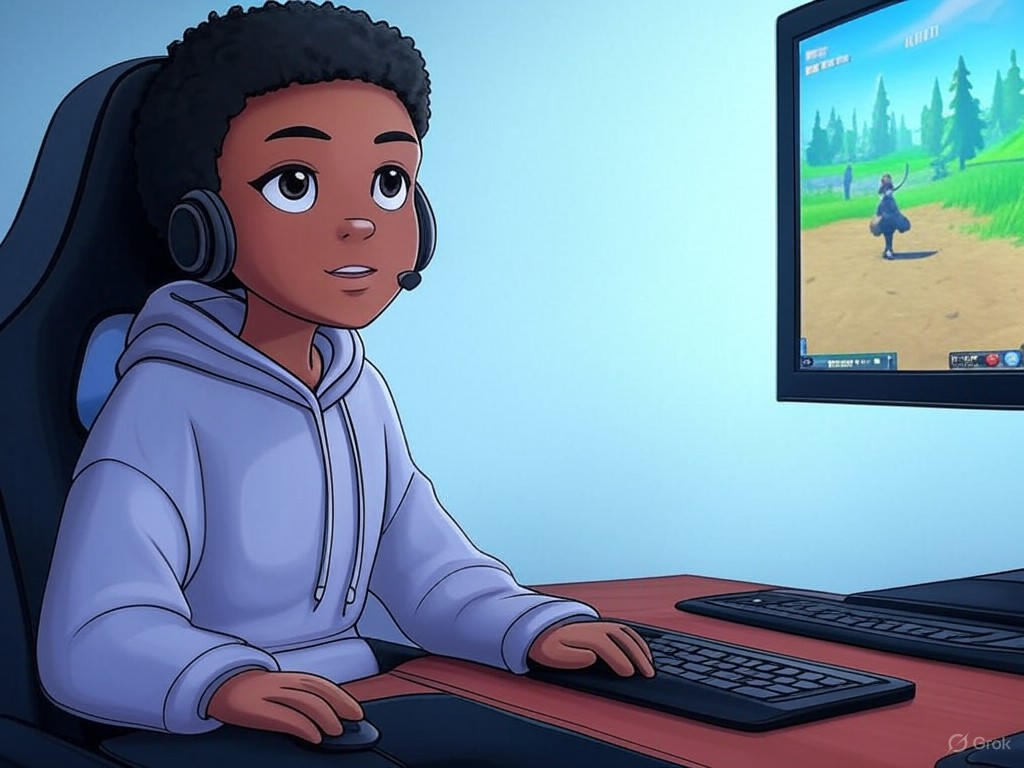
In this lesson, you will explore:
 Online spaces refer to various virtual environments on the internet where individuals can interact, acquire knowledge, engage in recreational activities, or exchange information. These are not tangible locations but digital realms that you can access via devices such as computers, tablets, or smartphones.
Online spaces refer to various virtual environments on the internet where individuals can interact, acquire knowledge, engage in recreational activities, or exchange information. These are not tangible locations but digital realms that you can access via devices such as computers, tablets, or smartphones.
To illustrate, consider platforms like Instagram, which serves as a space for sharing photographs and communicating with friends, or a school's official website, where you can complete assignments and access educational resources. Such spaces facilitate connections between people across the globe, enabling seamless communication and collaboration regardless of physical distance.
It is essential to recognise that, similar to physical venues like playgrounds or libraries, online spaces are governed by specific rules and guidelines designed to ensure the safety and well-being of users. Adhering to these rules promotes a positive and secure online experience for everyone involved.
 Online spaces can be categorised according to their primary purpose. Let us examine the various types in detail:
Online spaces can be categorised according to their primary purpose. Let us examine the various types in detail:
Social spaces are designed primarily for connecting with friends, family, and acquaintances. Examples include platforms such as Facebook, Instagram, X(Formerly known as twitter) and Snapchat. In these environments, users can share personal updates, photographs, and messages, fostering relationships and enabling communication across distances. It is important to use these spaces responsibly, ensuring that shared content is appropriate and privacy settings are adjusted to protect personal information.
Educational spaces focus on learning and acquiring knowledge. You are currently using one right now – Coding Ireland! These spaces offer resources for completing homework, exploring subjects in depth, and discovering new facts through interactive lessons and videos. They provide a structured way to enhance your education outside the traditional classroom setting.

Gaming spaces are virtual environments dedicated to playing games, often with others. Popular examples include FIFA, Fortnite and Minecraft servers. Here, you can collaborate with teammates, play against your friends, or explore imaginative worlds. These spaces promote creativity and strategic thinking, but it is essential to balance gaming time with other activities and to interact respectfully with fellow players.
Informational spaces serve as repositories of news, facts, and research materials. Examples include Wikipedia and child-friendly news websites such as RTÉ news2day. These platforms are valuable for investigating topics, staying informed about current events, and gathering reliable information for school projects. Always verify the accuracy of the content by cross-referencing with trusted sources.
Community spaces bring together individuals with shared interests or hobbies. These can be found on forums like Reddit or fan sites dedicated to books, films, and other topics. In these spaces, you can participate in discussions, exchange ideas, and form connections with like-minded people. They encourage collaboration and the sharing of knowledge, but remember to follow community guidelines to maintain a positive atmosphere.
 It is crucial to understand appropriate conduct within online spaces. Engaging in safe behaviours allows you to enjoy these environments securely and responsibly, whereas risky behaviours may expose you to potential dangers or negative consequences. In this section, we will explore examples of both safe and risky behaviours, providing guidance on how to make informed choices that protect yourself and others.
It is crucial to understand appropriate conduct within online spaces. Engaging in safe behaviours allows you to enjoy these environments securely and responsibly, whereas risky behaviours may expose you to potential dangers or negative consequences. In this section, we will explore examples of both safe and risky behaviours, providing guidance on how to make informed choices that protect yourself and others.
Safe behaviours are actions that promote a secure and positive online experience. By adopting these practices, you can minimise risks and contribute to a respectful digital community. Consider the following:
Risky behaviours are actions that can lead to harm, either to yourself or others, and should be avoided. Recognising these helps you steer clear of potential pitfalls in online spaces. Examples include:
 Now it is your opportunity to apply the knowledge you have gained about safe and risky behaviours in online spaces. This activity will help you practise making responsible decisions in a real-life scenario. By reflecting on the situation and considering your responses, you will develop skills to navigate online environments more confidently and securely.
Now it is your opportunity to apply the knowledge you have gained about safe and risky behaviours in online spaces. This activity will help you practise making responsible decisions in a real-life scenario. By reflecting on the situation and considering your responses, you will develop skills to navigate online environments more confidently and securely.
Scenario: Imagine you are playing in a gaming space, such as Fortnite, and a new player you have just met in the game asks for your real name and where you live. They say it is to 'team up better' and make the game more fun.
What should you do? Take a moment to think carefully about the situation. Then, reflect and write down your answers to the following questions. You can use a piece of paper, a notebook, or a notes application on your device: